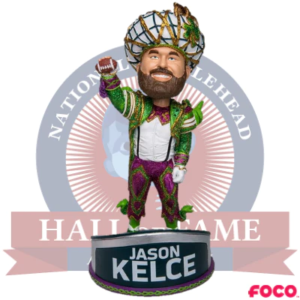The booming sports card market has led to a huge demand for graded cards. Getting your cards professionally graded by a reputable company can significantly increase their value. The 3 giants in card grading are PSA, BGS, and SGC. But how do they differ, and which one is the best? This article will compare and contrast these major third-party grading companies.
PSA History and Reputation:
PSA (Professional Sports Authenticator) was founded in 1991 and is considered the first major third-party card grading company. Of the big 3 graders, PSA is viewed as the most respected and prestigious. The centering and sharp corners of a PSA 10 grade are highly desired by collectors and investors. Their grading standards are considered very strict and getting the coveted PSA 10 is difficult. This has led to PSA 10 graded cards commanding the highest premiums on the secondary market.
BGS History and Reputation:
BGS (Beckett Grading Services) launched in 1996 as competition to PSA. They are best known for their sturdy plastic slab cases and for grading using sub-categories. BGS grades cards using centering, corners, edges, and surface each on a 10 point scale, then generates an overall grade from 1–10 based on the subs. This appeals to collectors who appreciate the detailed breakdown. While not viewed as quite the gold standard PSA is, BGS is a popular alternative for getting cards graded.
SGC History and Reputation:
SGC (Sportscard Guaranty) entered the card grading field in 1999. Of the big 3, they have the smallest market share and less name recognition than PSA/BGS. They grade using a 10 point scale similar to PSA. SGC has earned a reputation for consistency and accuracy in their grading. However, collectors perceive them as more lenient graders compared to the strict standards of PSA and BGS.
Grading Process Comparison:
When submitting cards to be graded, PSA is the most straightforward while BGS and SGC require more specifics upfront. Turnaround times can vary greatly among the companies depending on the service level selected. Costs are comparable for basic grading among the 3 services. PSA and BGS are viewed as having more expertise when it comes to detecting counterfeits compared to SGC.
Grading Scale Differences:
As mentioned earlier, PSA uses the widely recognized 10 point grading scale, while BGS incorporates sub-grades before arriving at an overall score. SGC also grades on a 10 point scale but is known for being more lenient in awarding 9s and 10s compared to PSA and BGS.
Case Differences:
The iconic PSA slab case is preferred by many collectors for its aesthetics, whereas the BGS slab highlights sub-grades and offers greater protection. SGC slabs stand out with their black color but aren’t as popular as PSA or BGS cases.
Grading Cost Comparison:
PSA Grading Costs:
- Value Service (cards <$499): $25 per card
- Regular Service (cards <$9,999): $50 per card
- Express Service: $150 per card
- Super Express: $300 per card
- WalkThrough Service: $600 per card
BGS Grading Costs:
- Collectors’ Special: $18 per card
- Base Service without subgrades: $18 per card
- Base Service with subgrades: $22 per card
- Standard Service: $30 per card
- Priority Service: $75 per card
- Premium Service: $150 per card
SGC Grading Costs:
- Standard Service (cards <$250): $25 per card
- Immediate Service: $75 per card
- Custom Service: pricing varies
Pricing and Premiums:
It’s clear the market favors PSA graded cards, especially their top grades. PSA 10s consistently sell for higher premiums over raw cards and BGS/SGC equivalents. BGS 10s do garner a nice premium but cannot match PSA 10 values. SGC 10s lag far behind, rarely matching PSA/BGS prices.
While BGS and SGC have their merits, PSA remains the leader in the card grading world thanks to its reputation for strict standards, prestige, and high resale value. Most collectors and investors prefer PSA graded cards when buying and selling. However, BGS and SGC can be smart alternatives if PSA turnaround times or prices are prohibitive. For maximizing value, it’s hard to beat having your card encapsulated in the iconic PSA slab.


